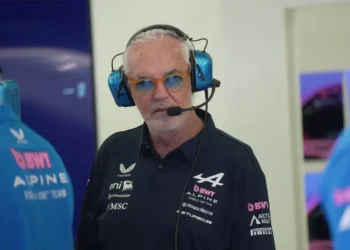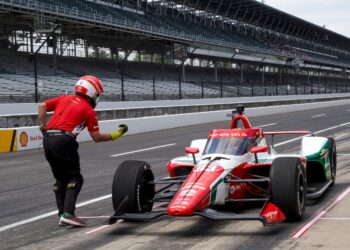F1 ENGINE REVOLUTION FOR 2029 CRASHES AND BURNS: FIA PULLS PLUG ON GAME-CHANGING PLANS!
In a stunning twist that has sent shockwaves through the motorsport community, the FIA has officially scrapped its ambitious plans for a radical overhaul of Formula 1 engine regulations set for the 2029 season. This dramatic decision, announced just as the Italian Grand Prix revs into action at Monza, comes on the heels of fierce backlash from major manufacturers who vehemently opposed the proposed switch.
FIA President Ben Sulayem had been championing a bold move towards a 2.4-litre V8 naturally aspirated engine, complete with a hint of hybrid technology. This plan was intended to replace the current hybrid engines that have dominated the grid, but it faced a wall of resistance that proved insurmountable. The idea of reverting to a V8 engine—previously dismissed in favor of more modern alternatives—was met with skepticism, particularly given the impending introduction of new engine regulations in 2026 that are designed to last until 2030.
Initially, a crucial meeting was scheduled for Thursday to hash out the future of F1 engines, but it has since been canceled. Sources indicate that Sulayem recognized the futility of trying to forge a consensus among engine manufacturers who were deeply divided on the specifics of power output and hybrid integration. The complexity of the situation was likened to attempting to win at online slots using chocolate as currency—utterly unrealistic!
While there was not a complete rejection of the V8 concept, the debate over the hybrid component—whether it should be turbocharged or otherwise—fueled discord among stakeholders. This development marks the second defeat for Sulayem in just six months regarding his attempts to reshape F1 engine regulations. It’s clear that the president’s push for rapid change has been met with significant hurdles, as many believe he has tried to rush the process without sufficient support.
In a candid statement, an insider noted that Sulayem might have been “too fast and too soon” in his ambitions to align the sport’s future with a more sustainable direction. As fans are well aware, teams are keen to transition away from fossil fuels and embrace electrification and hybrid technology, but the challenge lies in the details of how these changes will be implemented.
Looking ahead, the FIA president seems poised to abandon any further rule changes until at least 2031. Current agreements governing the sport extend only until 2030, after which the FIA will have the freedom to introduce new regulations. However, any unilateral push for naturally aspirated engines could provoke further backlash, putting existing manufacturers at risk of walking away from Formula 1 altogether, jeopardizing their investments in hybrid technology.
As the dust settles on this high-stakes saga, one thing is clear: the landscape of Formula 1 is in constant flux, and fans should brace themselves for what comes next. The FIA’s decision to abandon the 2029 engine change is merely a chapter in a larger narrative that continues to unfold. Stay tuned, as the thrilling race for the future of F1 engines is far from over!










